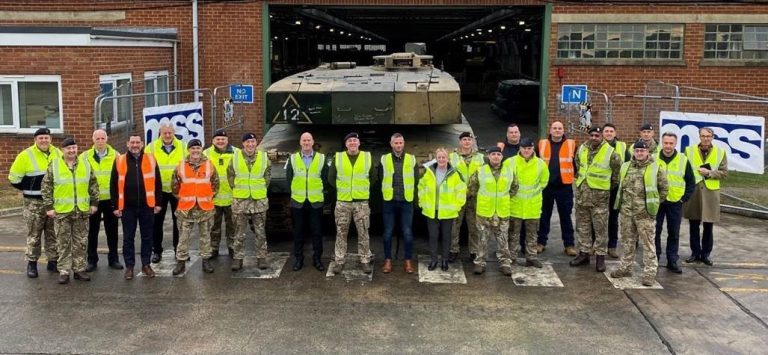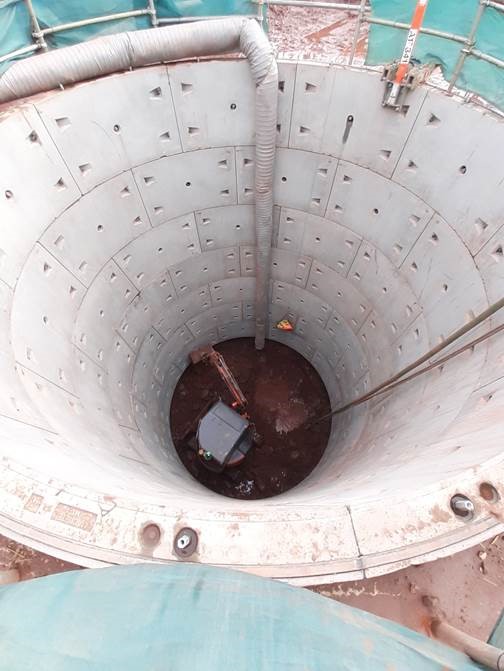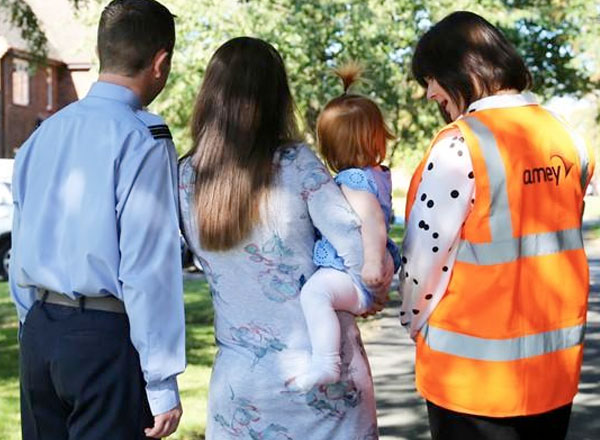SOCOTEC’s Asbestos team recently supportedinfrastructure service support provider, Amey, with the asbestos decontamination of vehicles and assets at MOD Ashchurch, a primary vehicle storage and distribution site for armoured vehicles and the main Stored Equipment Fleet (SEF) storage and maintenance depot for the army in the UK. MOD Ashchurch was shut down by the HSE due to asbestos-related concerns, with a programme (known as Operation Windfirm) specifically developed to allow re-entry to the site through the decontamination of buildings, vehicles and assets and the safe return of occupants. As part of the programme, asbestos control measures under CAR 2012 needed to be agreed with the HSE and implemented throughout the site. Alongside another third party, SOCOTEC supported Amey with the decontamination work and conducted the subsequent inspection and issuing of certification in line with government guidelines. Deterioration of asbestos Ashchurch comprises a 178-acre site with numerous large asbestos cement clad and roofed sheds. Over the years, these asbestos storage sheds have decayed, leading to the contamination of vehicles and the assets stored within them. The asbestos cement rooves have also deteriorated due to a combination of weather conditions and a lack of repair. This has resulted in pieces of asbestos cement being visibly strewn across floor areas. As is common with asbestos cement rooves, an abundant coverage of moss and lichens exist. When these grow on cement sheeting, their roots will penetrate beneath the upper layers of the cement and remove moisture. This plant growth will eventually cause damage, erosion and weakness to the roof surface which, in conjunction with the weather conditions, will eventually result in moss/lichens being displaced onto adjacent surfaces such as roads, walkways and grassed areas. The plant growth activity causes the cement matrix (essential for binding and holding the asbestos fibres in place) to break down and no longer be present, with the fibres loosely adhered to the roots of the moss/lichens. When these roots fall off the rooves, they leave behind an unsealed surface with loose asbestos fibres that can easily be displaced and moved across the site. Moreover, severe weather conditions meant that contamination was being walked across the site or tracked on vehicles due to the large gull colony of birds using the material for nesting. Identifying locations SOCOTEC’s Asbestos team carried out a targeted survey over a three-month period to determine the extent of the contamination at MOD Ashchurch. Over 6,000 samples were taken, 75% of which returned positive results for asbestos. Key areas where asbestos was found included: Loose debris to rooves/guttering/downpipes A contaminated drainage system Debris to grassed areas (in some cases, legacy contamination from when rooves had been replaced historically) Extensive debris and contamination to vehicles, bridging and associated equipment Contamination within the ground. Control measures Working collaboratively alongside third parties, SOCOTEC contributed to a programme involving site asbestos maintenance and designated decontamination hubs. Controls to ensure the safe, continued operation of the site included: HEPA adapted road sweepers to carry out scheduled housekeeping, protecting assets and personnel in the occupied buildings. Sweeper waste sampling results were reported back to the army, Amey and other site stakeholders on a weekly basis to act as early warnings for spikes, general high readings and seasonal/annual variations. All personnel were given asbestos awareness training, which was maintained annually Fencing to the entire perimeter of the site was covered with fine netting, preventing the spread of any asbestos from site A controlled wheel wash was installed at the exit to the site during the early phase of the work until contamination issues were brought under control Routine housekeeping within occupied buildings was carried out using type H vacuum cleaners to capture any cross contamination from external areas Control of site maintenance activities, such as grass cutting and disposal of waste Alongside site maintenance, high and low volume air monitoring took place on the site perimeter, in occupied buildings, around the site, on personnel and when project activities were undertaken To determine if airborne asbestos was present, conventional analytical methods were complemented by the use of Scanning Electron Microscopy (SEM) with fibre identification by Energy Dispersive X-ray Spectroscopy (EDXS) Enhanced safe systems of work and associated training for all staff and visitors to site. Two hubs were specifically set up in order to decontaminate vehicles, bridging and equipment. All vehicles and assets underwent a proof of concept to determine the safest decontamination method, ascertain the appropriately sized team for the asset and the average time taken. This process formed part of the risk assessment and method statements, which were signed by all stakeholders and used for personnel to sign onto, demonstrating a full understanding of the agreed processes. Air monitoring and inspection Of the 50,000 air tests carried out, 45,000 were static samples and 5,000 were personal air tests. All but a handful were less than the clearance limit, demonstrating tight controls and compliance with working practices throughout the duration of the project. SOCOTEC’s Asbestos team supported the Operation Windfirm programme, with all decontaminated items inspected and a certification of cleanliness produced. This included issue, TacCIS, EBS and ES Mat items, vehicles, bridging assets, as well as workshop equipment and tools. After decontamination, the vehicles and assets either went for external storage, return to unit, disposal, destruction, or remained on site. Innovation and collaboration Due to the critical nature and size of the project at Ashchurch, bespoke innovations were required to control the spread of asbestos and keep all personnel and the community safe. The two road sweepers were customised with HEPA filters to prevent the spread of airborne asbestos fibres, as a traditional filter would not have controlled the fibres. Specialist modified air monitoring pumps were commissioned, and long-life batteries were fitted to allow over eight hours of continuous monitoring at 16 litres/minute. This allowed levels of down to 0.0002 fibres/ml to be detected, well below regular monitoring levels and aligned with HSE research. Close collaboration and effective communication between stakeholders was of paramount importance, with weekly meetings and open discussions







